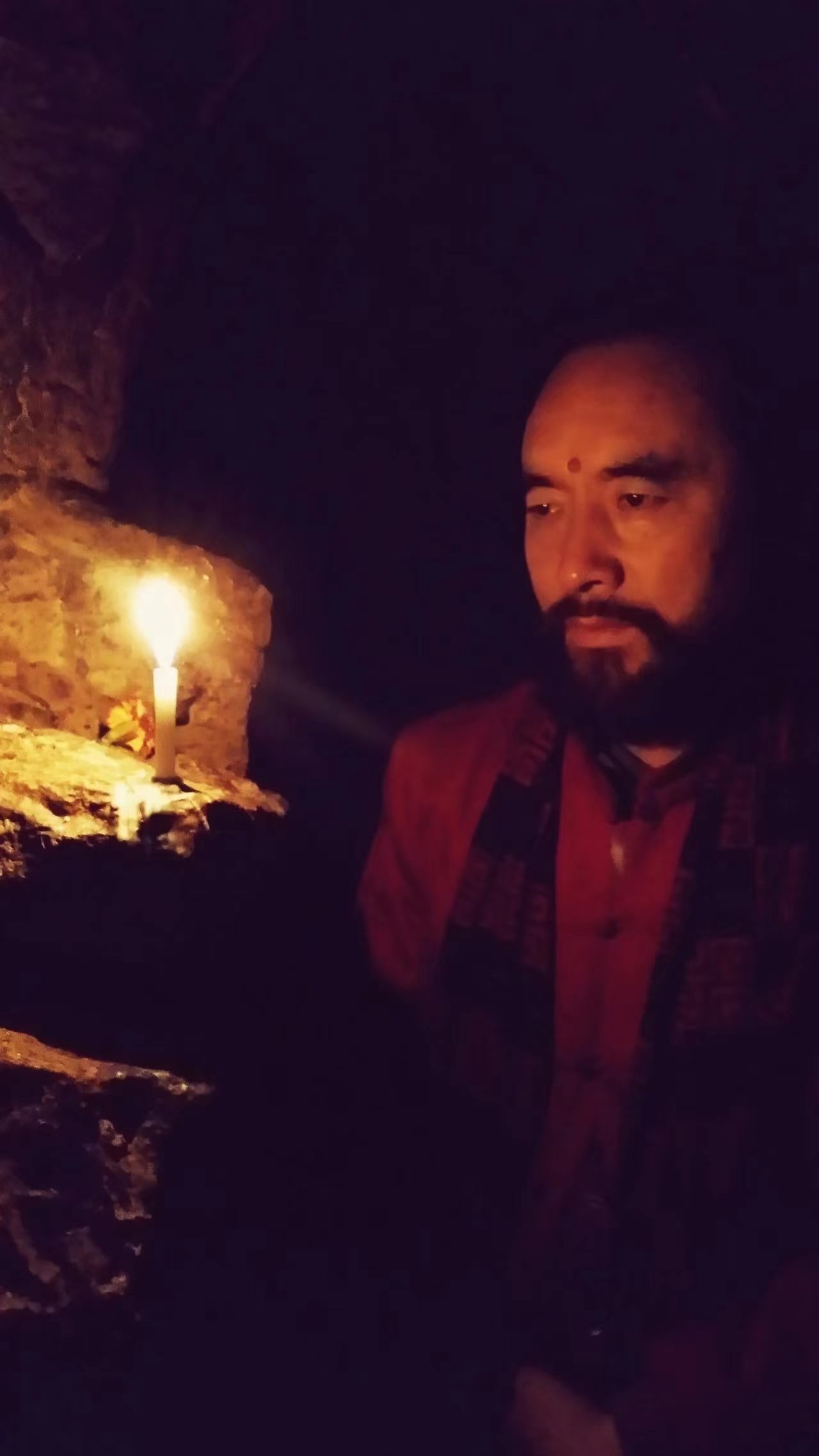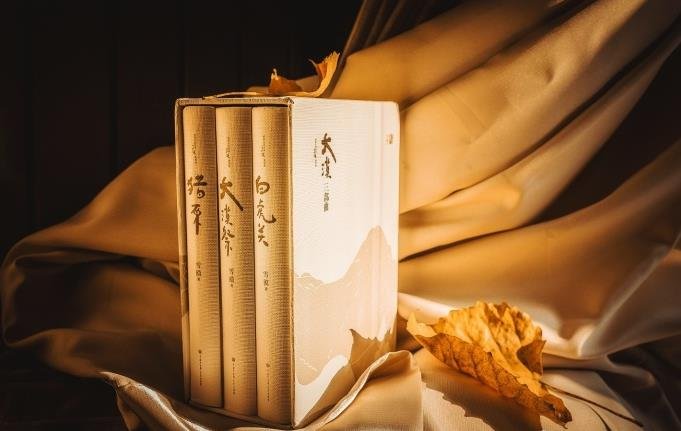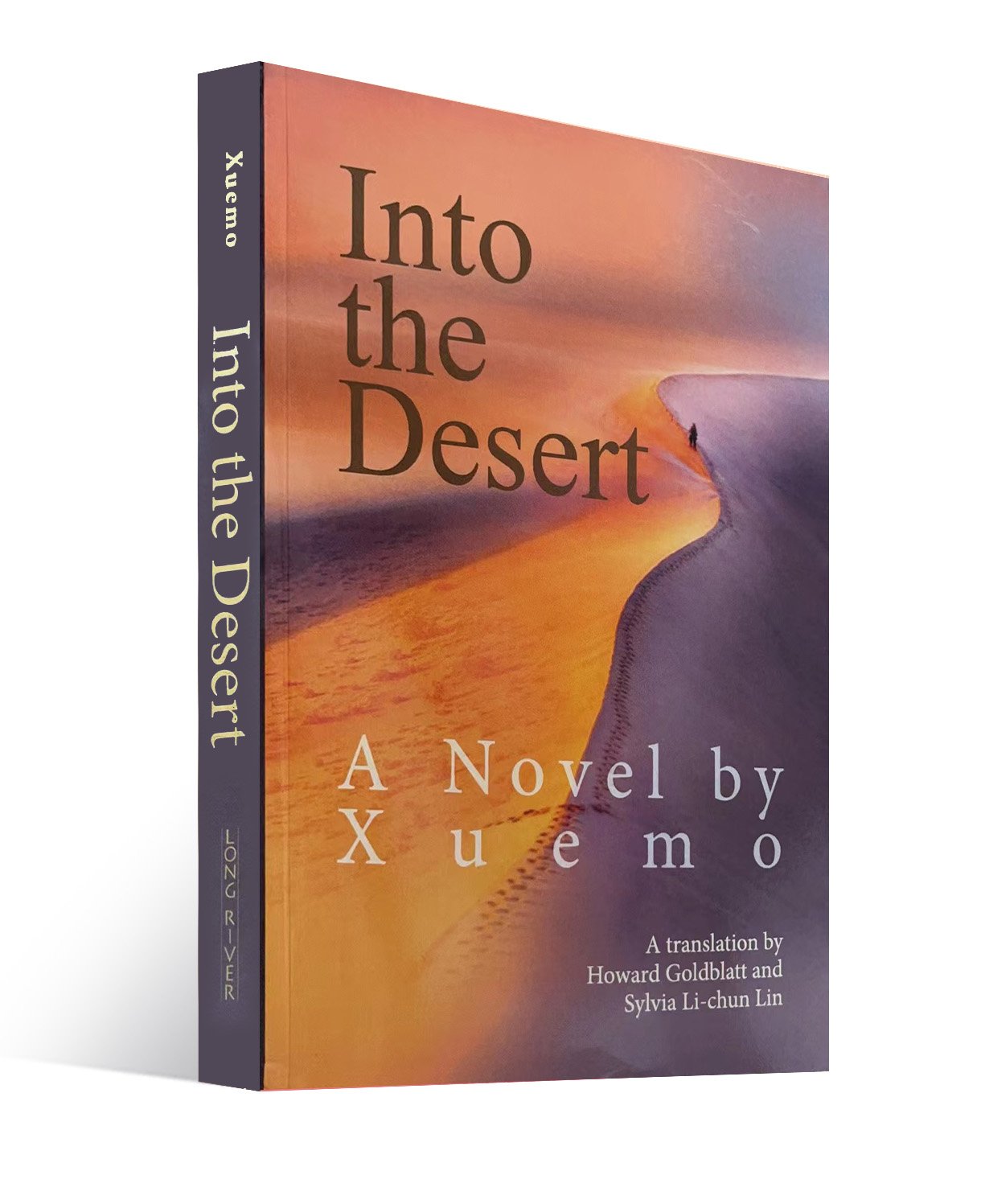
作家雪漠和他的灯
阿诺
雪漠,一个出生在中国西部的汉子,一个用脚步丈量大地,用笔墨书写人生的作家。他是祁连山的宠儿,那里的一程山水,一曲阳关,给了他生命与向往。为梦想,他远行千里,从未停止寻觅;为故乡,他提笔弄墨,用生命来描摹。他笔下流出的智慧,给无数爱他的读者,点亮了一盏心灯。
雪漠,原名陈开红,代表作有长篇小说《大漠祭》《猎原》《白虎关》《野狐岭》《西夏咒》《凉州词》《深夜的蚤豆声》《无死的金刚心》,史诗《娑萨朗》等,荣获冯牧文学奖、上海长中篇优秀小说奖等几十个奖项,入选2015年中国文化十大品牌人物,系复旦大学肿瘤研究所人文导师、上海中医药大学中医肿瘤研究所首席人文导师、广州外语外贸大学文学翻译与跨文化研究中心首席专家。美国著名翻译家葛浩文先生(Howard Goldblatt)已将雪漠的九部长篇小说和史诗翻译为英语。雪漠作品被译为英语、法语、德语等三十多种语言,在世界各地有广大的读者群,作品有上百种,广受读者热爱。
雪漠出生在一个非常偏僻的村子里,那儿黄沙扑面,干旱缺水,十分贫穷。除了学生课本之外,村子里找不到一本书。小时候的雪漠,老是挨饿,营养不良,十分瘦小。
雪漠的梦想,是当一个作家。但一无所有的孩子,如何才能实现自己的梦想?没有家庭背景,没有助力,没有成功需要的一切,雪漠看不到一点希望。
一天,舅舅说,只要在自家院里栽一个高高的杆子,杆子顶端装一盏灯。一入夜,就点亮那盏灯,同时在心中默念:“自强不息,厚德载物”。将来,家里就会出一个名人。
雪漠的父母是农民,不识字,他们信舅舅的话,就从河湾里砍来了一棵小树,栽在自家院里。那长长的木杆,矗立在一排排土坯房子中间,直直地伸向天空,木杆上面,安了一盏灯。一入夜,那夜空中的灯就亮了。那时,雪漠家很穷,一贫如洗,电费虽成了负担,但那灯却一直亮了多年。西部的夜空,总是显得很高,那深邃的黑色底幕上,点缀着点点星星,星光清冷,触不可及般地遥远。而院子上空的那盏灯,正散发出希望的光芒,温暖着一个孩子的心。
夜空中的那盏灯,一直亮过了雪漠的童年、少年、青年。一看到那盏灯,雪漠就看到了希望。
心中的灯,夜空中的灯,交辉相映着。这个西部的乡村孩子,顽强地成长起来。
灯光中,雪漠自强不息,厚德载物。几十年如一日。
那盏灯,一直伴着雪漠成长。
2000年,雪漠和的长篇小说《大漠祭》出版,他一夜成名。此后,《猎原》《白虎关》相继问世,好评如潮,成为中国乡土文学的标志性作品。他25岁开始写作,46岁完成了“大漠三部曲”。雪漠把最黄金的二十年生命,献给了中国农民, 为他们写了一部大书。
此后,《西夏咒》《野狐岭》《无死的金刚心》相继问世,雪漠成为中国当代文学史、中国西部文学史绕不过去的存在。中国小说学会会长、中国作家协会创作研究部原主任、著名文学评论家雷达先生称:“雪漠的出现已经成为一种独特的文学现象,他代表了一种文化、一种精神、一种人格、一种理念。雪漠的出现,是一个奇迹,他得益于对中国农民精神品性的深刻挖掘。雪漠小说表现的强劲程度,是我们很多作家所不能比的。”复旦大学陈思和教授称:“雪漠与张承志是中国当代西部文学作家中最有精神性的”“他接过了萧红的精神”。北京大学陈晓明教授说:“雪漠是一个被严重低估的作家……雪漠是个大作家。”
就这样,雪漠以笔为旗,艰苦跋涉,走出了乡村,走向了城市,但那盏灯,却一直在雪漠的心头亮着。
那盏灯,成了雪漠的生命图腾,一直亮在他的生命时空里。
在灯光中,雪漠自强不息,写出了《真心》《空空之外》《大师的秘密》《雪漠心学概论》《文化传播学实践教程》等作品,中国大百科出版社专门为他建立了“雪漠图书中心”,出版了雪漠心学大系。他创立了雪漠心学。他的作品,也成了很多人心中的一盏灯。有华人的地方,就有雪漠的书。在美国、加拿大及欧洲、南亚的许多国家,都建有雪漠图书中心。
加拿大佛学大师谈锡永先生称,雪漠的《空空之外》是近百年甚至更远的历史时期内,最好的佛学著作。
雪漠的《佛陀的智慧》,一本书解透了佛教的理论和实践,被专家认为前无古人。
后来,雪漠依托自己的深厚学养和生命实践,历时六年,写出了史诗《娑萨朗》,此书长达八万行,一百多万字,填补了中国汉民族无史诗的空白。有学者称:《娑萨朗》是一部奇幻绝伦又真实无比的划时代史诗,一场恢宏震撼又直击人心的命运大戏,一幅交织着善与恶、爱情与信仰、功业与平凡、征伐与和平、小我与大爱的多彩画卷,一条尽显人性、洗涤灵魂、开启生命之光的跌宕征途,一首你我皆不愿错过的神曲。有专家将《娑萨朗》与《冰与火之歌》《魔戒》并称为当代世界三大奇幻史诗。
就这样,雪漠用自己生命在书写,书写世界,书写灵魂,照亮自己,照亮他人。
无论遇到什么样的锉折,只要心中的那盏灯亮着,雪漠就会有无穷的力量。
那盏灯,就是希望和梦想。
我们每个人,都需要那盏灯。
我们人类,也需要那盏灯。
那灯光,即使很弱,也总能穿透浓浓的黑夜。
Xuemo and His Light
By Anuo
Translated by Howard Goldblatt and Sylvia Li-chun Lin
Xuemo, born in China’s far west, is a writer who plumbs the earth with his footsteps and lives through his pen. A favorite son of the Qilian Mountain Range, he has fashioned his life and his aspirations out of the natural scenery and musical traditions of the place. He travels far in the fulfillment of his dreams and never stops searching; he wields a pen to memorialize his hometown and writes with passion. The wisdom flowing from his fingertips lights up the hearts of countless readers.
Xuemo, the penname of Chen Kaihong, is the author of Desert Rites, Desert Hunters, White Tiger Pass, Wild Fox Ridge, The Curse of Xixia, Songs of Liangzhou, The Sound of Broadbeans Late at Night, and, The Monk and the Spirit Woman, as well as Suosanlang, an epic poem. His works have won major prizes in China, including the Feng Mu Literary Award, the Shanghai Novel and Novella Prize. In 2015 he was named one of China’s Ten Persons of the Year, and has served on the faculty at Fudan University, Shanghai University of Traditional Chinese Medicine, and Guangzhou University of Foreign Studies. Six of his novels, as well as the epic poem, have been rendered into English by the award-winning team of Howard Goldblatt and Sylvia Li-chun Lin. Besides English, Xuemo’s works have also appeared in French, German and more than three dozen other languages, reaching a large international readership. Domestically, he has legions of devoted followers and a corpus of more than a hundred published works.
Xuemo was born in a remote, impoverished village threatened by blowing sand and perennial drought. When he was a child, not a single book, other than school textbooks, could be found in his village; hunger was constant, and undernourishment stunted his growth. And yet, he dreamed of becoming a writer. How could a child with nothing make the dream come true? No one in and outside his family could help him, and he had none of what was needed to succeed. He saw not a shred of hope.
One day, his maternal uncle said to his parents,
“Plant a long pole in your yard and put a light on its tip. Every day at nightfall, turn the light on and silently recite, ‘The enlightened exert themselves constantly/the virtuous endure onerous duties.’ Keep at it and one day someone in your family will gain fame.”
Xuemo’s parents, born of peasant stock and illiterate, believed what his uncle told them. They cut down a small tree in the riverbend, stripped its leaves, and planted it in their yard. The pole rose into the sky among squat rammed-earth houses, its tip adorned with a light that was turned on each evening. The electricity for the light was a major expense and a burden to a family with practically nothing, but it kept coming on night after night for years. The sky always seems higher in the west than elsewhere; at night it is a deep, black curtain dotted with stars that emit cold glints, distant and unreachable. But not the light in the yard that emitted a ray of hope and sent warmth into a child’s heart.

That light shone all through Xuemo’s childhood, saw him into puberty and adulthood. He saw hope whenever he looked at it.
The light in his heart set off against the light in the night sky to shine a way for this tenacious village boy to grow up.
Under its light, Xuemo exerted himself unceasingly and endured onerous burdens. Day after day, for decades.
It was his companion as he grew up.
In 2000 the publication of Desert Rites brought him instant fame and recognition. Desert Hunters and White Tiger Pass followed, both to critical acclaim, widely considered as representative works of China’s Nativist literary tradition. Collectively titled The Desert Trilogy, they were begun when he was twenty-five and completed at forty-six; he’d given twenty of his best years to China’s peasants through the three volumes.
The publication of three more works, The Curse of Xixia, White Fox Ridge, and The Monk and the Spirit Woman, established him as an important figure in contemporary Chinese literature as well as an essential presence in the literary representation of China’s West. Lei Da, president of the Chinese Fiction Society and a well-respected literary critic, once said, “Xuemo’s appearance was a unique literary phenomenon, for he represented a kind of culture, a zeitgeist, human dignity, and an ideal. It was a miraculous occurrence, for he gained great insights from delving deeply into the mentality and temperament of Chinese peasants. The powerful force exhibited in his works is beyond the ability of many Chinese writers.” Professor Chen Sihe at Fudan University had the following to say, “Xuemo and Zhang Chengzhi are the two most spiritual writers from the west,” and “he carries on the vitality seen in the work of Xiao Hong.” Chen Xiaoming of Peking University lamented that “Xuemo is a severely undervalued writer,” who is “a major figure in contemporary Chinese literature.”
With his pen as a banner, Xuemo trudged out of his village into urban areas, that light shining bright in his heart the whole time.
The light is the totem of his life, always aglow, wherever he may be at whatever time.

Under the light, he has ceaselessly exerted himself, completing True Heart, Beyond Emptiness, Guru’s Secrets, An Outline of Xuemo’s Study of the Mind, A Study Guide for Cultural Transmission, and others. Encyclopedia of China Publishing House, an influential press, established a special division for Xuemo’s works and published a series of his writing on the mind. Meanwhile, Xuemo has himself become a light for many people through his study of the mind. His works light up many people’s lives. Where there are ethnic Chinese, there will be books by Xuemo, and special division on Xuemo can be found in the US, Canada, Europe, and Southeast Asia.
Tan Xiyong, a Canadian expert on Buddhism has called Xuemo’s Beyond Emptiness the best writing on Buddhism in the last hundred years and beyond. Moreover, his Buddha’s Wisdom is considered by experts in the field as the most profound work ever in the analysis and interpretation of Buddhist theory and practice.
His Suosalang, an epic poem in eighty thousand lines and over a million words, emerged from his own study and lifelong practice. It helps fill in the lack of epic poetry in Chinese literary history. According to a scholar, it is a fantastic and yet extremely realistic epic poem that depicts an expansive, impactful, and emotionally moving battle of destinies, a colorful scroll that weaves together the conflict between good and evil, love and spiritual devotion, exploits and ordinary life, war and peace, self and Universal Love, a long journey that exposes human nature, helps cleanse the soul, and shines a bright light on life, a divine work no one should miss. One authority has grouped Suosalang with A Song of Ice and Fire and Lord of the Rings as the three best fantastic epic poems of the contemporary era.
That is because Xuemo writes with his life, writes about the world and human souls to light up himself and others.
Whenever he encounters setbacks, Xuemo knows he has inexhaustible strength so long as the light in his heart is on.
That light is hope and dreams.
Every one of us needs the light.
All humankind needs the light.
The light may be faint, but it can penetrate the darkest of nights.
